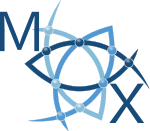Profile
- Developed, implemented and employed novel computational methods and algorithms for the prediction, discovery and characterization of advanced energy materials.
- Initiated and carried out international collaborations, with researchers from France, Germany, Japan, Iran, India and the USA.
Complete list of publications can be found here or on google scholar.
- Quantum Monte Carlo methods in materials science
- High-pressure materials chemistry
- Autonomous materials discovery
- Complex oxides for electrochemical applications
- Computational discovery and design of thermoelectric materials
- Investigation of high-pressure intermetallics in ambient-immiscible systems
- Discovery of novel superconducting materials and materials for metal ion batteries
- Development of advanced sampling method for materials prediction
- Prediction of hydrides for hydrogen storage and advanced materials for photovoltaic applications
Thesis title: “Crystal Structure Prediction Based on Density Functional Theory” With highest honor (summa cum laude)
Grade: 6.0/6.0
Grade: 5.5/6.0
"Structure Predictions with the Minima Hopping Method'' at the "Materials Science & Technology Conference'' in Pittsburgh, PA, USA
“Computational Approaches to Materials for Energy Applications” at the “TMS 2017 146 th Annual Meeting and Exhibition” in San Diego, CA, USA
“Materials Genome and Structure Optimization: Theory and Application of Structural Optimization via Minima Hopping” at the “ES 2016 Workshop” in Albuquerque, NM, USA
“Computational Discovery of Materials” at the Geophysical Laboratory, Carnegie Institution of Washington, DC, USA
“Designing Materials with the Minima Hopping Method” at the “20th Annual IASBS Meeting on Condensed Matter Physics” in Zanjan, Iran
“Ab Initio Structure Prediction with the Minima Hopping Method” at the “Interna- tional workshop on computational physics and materials science (“Total energy and force methods”) in Lausanne, Switzerland
“Novel Structural Motifs in Alanates” at the “6th International ABINIT Developer Workshop” in Dinard, France
“Structural Prediction” at the workshop “2nd Lyon School on Ab Initio Methods” in Lyon, France
Additionally, over 20 attended conferences with contributed talks and poster presentations (details available upon request)
Reader's choice award from HPCwire, the leading publication for news and information for the high performance computing industry, "Best Use of HPC in Physical Sciences", for using data-driven machine learning on Bridges to study the “high-pressure materials genome”, discovering new superconducting CuBi compounds, the first iron-bismuth compound and new TiO2 structures with potential for photocatalytic water splitting.
Improved Methods for Theoretical Materials Design - High-Pressure Materials
Improved Methods for Theoretical Materials Design
Structure Prediction of Molecular Crystals
Phase-stability of superconducting intermetallics from Quantum Monte Carlo simulations
Discovery of Energy Materials Through Large-Scale Lattice Dynamics
Materials Discovery Through Data Driven Structural Search and Heusler Nanostructures for Energy Applications
Development and application of advanced electronic structure methods in materials chemistry
